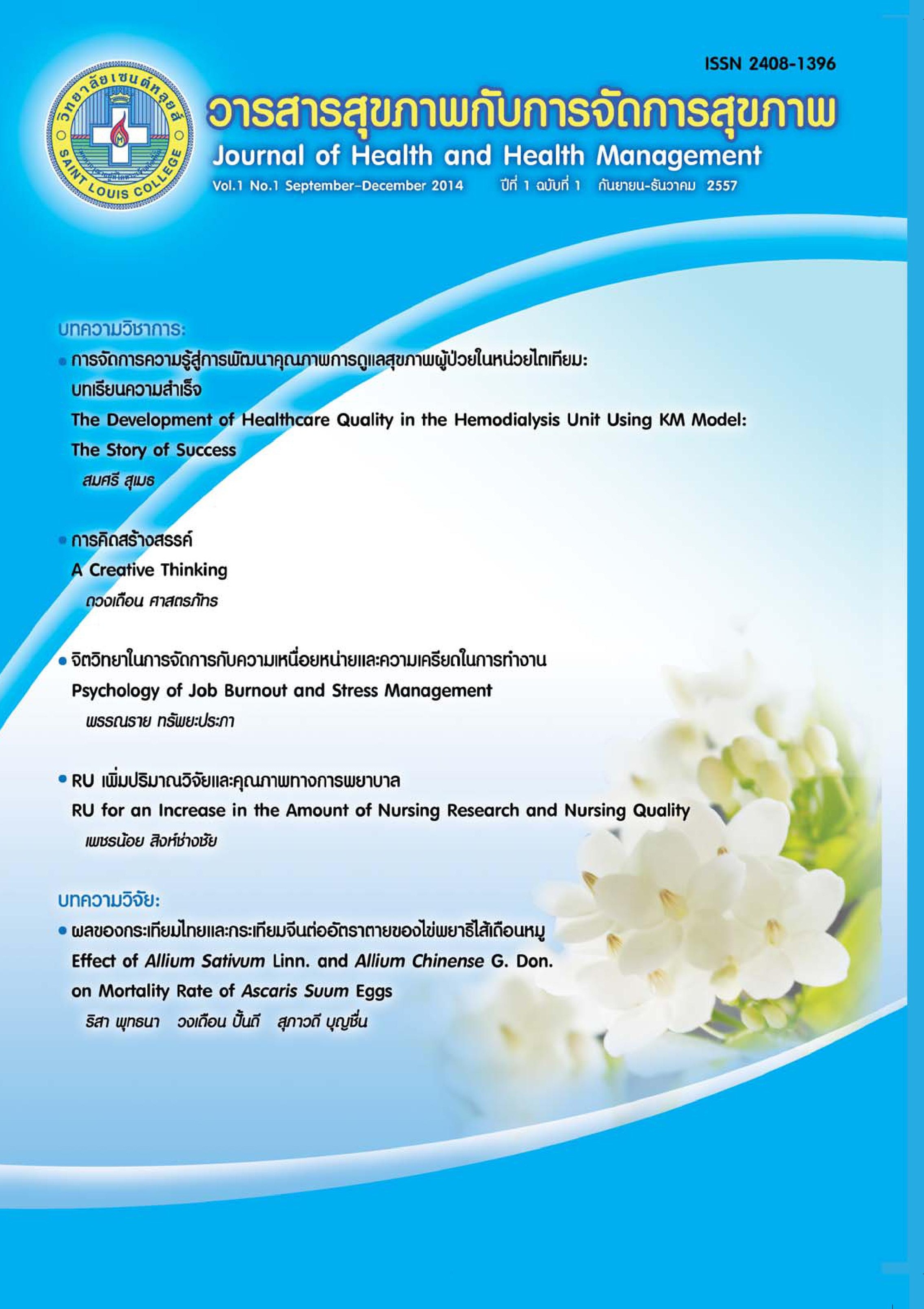Psychology of Job Burnout and Stress Management
Keywords:
stress management, psychology, job burnoutAbstract
The purpose of this article was to present the significance of job stress and burnout which means prolonged physical, emotional and mental exhaustion or failure from jobs and careers that affect one’s job, and interpersonal relationship in the workplace, combined with doubts about one’s competence and values of one’s work. It has been mainly applied to middle-age persons performing at a high level until stress and tension occurred. It is also a reaction to work stress resulting in such behaviors as apathy, emotional exhaustion, withdrawal and refusal to perform any kinds of work. Besides, it is occupationally- related stress syndrome, found among many helping professions, such as doctors, nurses, psychologists, teachers, as well as waiters and waitresses in the hotels, restaurants, dining rooms, supermarkets, or in the airplanes. Job stress and burnout can be characterized by a triad of symptoms: emotional exhaustion, cynicism, and loss of self–efficacy.
Job stress and burnout seem to be closely related to each other. The difference can be seen that stress involves too many pressures that demand too much on something. Small amount of stress can be characterized as motives of behavior. Whereas burnout, caused by excessive and prolonged stress can produce hopelessness, reduce one’s productivity, and energy, leaving feeling of increasingly hopeless, helpless, cynical, and resentful and lose the interest or motivation that led him to take on a certain role in the first place.
Herbert J. Freudenberger (1926-1999) a German-American Psychologist and Psychotherapist was the first one who used this term in his first book, called “Staff burnout” in 1974. He stated that burnout can be divided into 11 phases, which are not necessarily followed sequentially. Warning signs and symptoms of burnout are also included, which should be paid more attention: physical, emotional and behavioral, caused by work-related, lifestyle and personality traits of that individual.
Job burnout in organizations can be improved by closed cooperation among managers and workers in the aspects of work load, control system, rewards, fairness, values and community relationships. Burnout prevention, coping and strategies of burnout recovery also presented which can be applied in everyday life.
References
ราชบัณฑิตยสถาน, (2548). พจนานุกรมศัพท์จิตวิทยา อักษร A-L ฉบับราชบัณฑิตยสถาน. กรุงเทพ- มหานคร: ศักดิ์โสภาการพิมพ์.
Burnout (psychology). (2014). Retrieved June 14, 2014, from http://en.wikipedia.org./ wiki/burnout_(psychology).
Corsini, R. J. (2002). The dictionary of psychology. New York: Bruner-Routledge. Dictionary. (1997). Retrieved June 14, 2014, from dictionary.infoplease.com/burnout.
Freudenberger, J. & North, G. (1985). Women’s burnout. How to spot it, how to reserve it, how to prevent it. New York: Double Day.
Herbert Freudenberger. (2007). Retrieved from http://www.infoplease.com/ipa/ A0781755.html
Kraft, U. (June–July 2006). Burned out. Scientific American Mind. 17 (3), pp. 28–33.
Maslach, C., & Leiter, M.P. (1997). The truth about burnout. San Francisco: Jossey Boss.
Maslach, C., Schaufeli, B., & Leiter, M.P. (2001). Job burnout. In T. Fiske, L. Schacter, & C. Zahn–Waxler, (Eds). Annual Review of Psychology. 52, pp. 397 – 422.
Mayo Clinic Staff. (2012). Job burnout: How to spot it and take action. Retrieved from http://www.mayoclinic.org/healthyliving/ adult-health/on-depth/burnout/ art-20046642
Morris, W. (1975). The American heritage dictionary of the English language. Boston : American Heritage Publishing Co., Inc. and Houghton Mifflin Company.
Senior, J. (2007). Can’t get no satisfaction: In a culture where work can be a religion, burnout is its crisis of faith. Retrieved from http:// nymag.com/news/features/24757
Smith, M., Jaffe–Gill, E., Segal, J., & Segal, R. (2013). Preventing burnout: Signs, symptoms, causes, and coping strategies. Retrieved June 14, 2014, from http://helpguide.org /mental/burnout_signs_symptoms.htm




